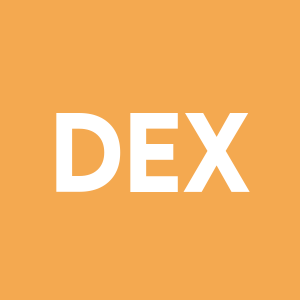Delaware Enhanced Global Dividend and Income Fund Appoints Benjamin Leung and Scot Thompson as Co-Managers
Delaware Enhanced Global Dividend and Income Fund (NYSE: DEX) announces the appointment of Benjamin Leung and Scot Thompson as co-managers, effective January 22, 2021. They will join a team responsible for daily investment decisions. The Fund aims for current income and capital appreciation, investing globally in dividend-paying securities across various asset classes and employing enhanced income strategies. Key investment parameters include a maximum of 60% in U.S. securities and at least 40% in non-U.S. assets, with up to 25% in real estate securities.
- Appointment of experienced co-managers may enhance fund performance.
- Focus on diverse income-generating securities supports potential yield growth.
- No assurance of achieving investment objectives.
- Leverage usage poses risks to fund performance.
Insights
Analyzing...
Today, Delaware Enhanced Global Dividend and Income Fund (NYSE: DEX) (the “Fund”), a New York Stock Exchange–listed closed-end fund trading under the symbol “DEX,” announced that, effective January 22, 2021, Benjamin Leung and Scot Thompson will be appointed as co-managers for the Fund. Mr. Leung and Mr. Thompson will join Åsa Annerstedt, Adam H. Brown, Liu-Er Chen, Chris Gowlland, Jens Hansen, Allan Saustrup Jensen, Claus Juul, Nikhil G. Lalvani, Stefan Löwenthal, John P. McCarthy, Klaus Petersen, Michael G. Wildstein, and Jürgen Wurzer in making day-to-day investment decisions for the Fund.
Benjamin Leung is the co-head of the Macquarie Systematic Investments (MSI) team, a role he assumed in August 2014. In addition to the day-to-day management of the global portfolios, he is also the head of research, responsible for driving the continual evolution of the systematic investment process. Leung joined the MSI team in May 2005 as a quantitative analyst, where his responsibilities included the development and maintenance of various quantitative models. Following his successful efforts to expand the quantitative capability to international markets, he formed the foundation of the current systematic investment approach. Prior to joining the MSI team, he worked as a software engineer for Macquarie’s Investment Banking Group Information Services Division in Sydney. Leung received a Bachelor of Engineering with Honours and a Masters in Commerce from the University of New South Wales.
Scot Thompson is the co-head of the Macquarie Systematic Investments (MSI) team, a role he assumed in August 2014. His responsibilities include the day-to-day management of the global portfolios, oversight of the trading function, development of new strategies, and client engagement. From June 2003 to August 2014, Thompson was the equities head of product, responsible for product design, development, and client relationships for the firm’s Australian and global equities product range. Before that, he was a member of the firm’s private equity fund-of-fund and performance analytics teams. Prior to joining Macquarie in November 2001 as a quantitative performance analyst, he worked on the performance analytics team for Cogent Investment Administration, where he was responsible for investment performance and attribution reporting for a variety of clients over all asset classes. Thompson also work in civil engineering before moving to finance, working for several Australian companies as a project manager focusing on underground installations, quarrying, and mining. He received a Bachelor of Civil Engineering from the University of Sydney and a Master of Applied Finance from Macquarie University.
The Fund’s primary investment objective is to seek current income, with a secondary objective of capital appreciation. The Fund invests globally in dividend-paying or income-generating securities across multiple asset classes, including but not limited to: equity securities of large, well-established companies; securities issued by real estate companies (including real estate investment trusts and real estate industry operating companies); debt securities (such as government bonds; investment grade and high risk, high yield corporate bonds; and convertible bonds); and emerging market securities. The Fund also uses enhanced income strategies by engaging in dividend capture trading; option overwriting; and realization of gains on the sale of securities, dividend growth, and currency forwards. There is no assurance that the Fund will achieve its investment objectives.
Under normal market conditions, the Fund will invest: (1) at most
About Macquarie Investment Management
Macquarie Investment Management, a member of Macquarie Group, is a global asset manager with offices in the United States, Europe, Asia, and Australia. As active managers, we prioritize autonomy and accountability at the team level in pursuit of opportunities that matter for clients. Macquarie Investment Management is supported by the resources of Macquarie Group (ASX: MQG; ADR: MQBKY), a global provider of asset management, investment, banking, financial and advisory services.
Advisory services are provided by Macquarie Investment Management Business Trust, a registered investment advisor. Macquarie Group refers to Macquarie Group Limited and its subsidiaries and affiliates worldwide. For more information about Delaware Funds® by Macquarie, visit delawarefunds.com or call 800 523-1918.
Other than Macquarie Bank Limited (MBL), none of the entities referred to in this document are authorized deposit-taking institutions for the purposes of the Banking Act 1959 (Commonwealth of Australia). The obligations of these entities do not represent deposits or other liabilities of MBL, a subsidiary of Macquarie Group Limited and an affiliate of Macquarie Investment Management. MBL does not guarantee or otherwise provide assurance in respect of the obligations of these entities, unless noted otherwise.
© 2021 Macquarie Management Holdings, Inc.
View source version on businesswire.com: https://www.businesswire.com/news/home/20210122005470/en/







